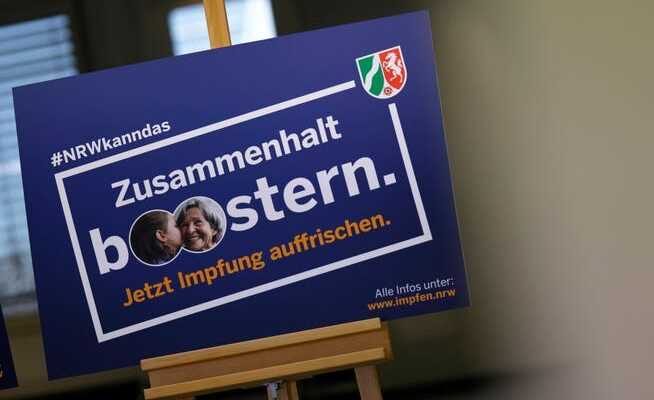Some are bothered by the amount of English in German, others see it as an enrichment. A scientific jury is now once again praising the Anglicism that was shaped by the Corona crisis – and explains why the German language community was even ahead of the native speakers.
The verb “booster” has been voted Anglicism of the Year 2021.
(dpa) The verb “booster” has been voted Anglicism of the Year 2021. The jury, headed by linguist Prof. Anatol Stefanowitsch from Freie Universität Berlin, praised the speed with which it filled a gap in the vocabulary and the ease with which the word found its place in the German grammatical system.
In German, the verb “booster” refers to the refreshing of a corona vaccination. It differs in several respects from the German phrase “give/receive a booster vaccination,” said the “Anglicism of the Year” initiative on Tuesday of the German vocabulary”.
Optimistic and dynamic overtones
First, “booster” as opposed to “give/receive a booster shot” refers specifically to vaccinations against the Sars-CoV-2 coronavirus and allows for concise yet clear communication during the pandemic. “Secondly, the emphasis with boosters is on the transience of vaccination protection – we are only boosted as long as the protective effect of the booster vaccination is still sufficiently high,” explained the initiative. “Thirdly, the word has an upbeat and dynamic connotation that the refresher just doesn’t quite match.”
Unlike the noun “booster” borrowed from English, the verb “booster” is probably a German creation, the initiative explained. The noun “booster shot” for “amplifier vaccination” appeared in English as early as the mid-1940s, the shortened form “booster” in the 1960s. The corresponding verb is “to boost”. There is a secondary form “to booster” – but it was extremely rare before January 2022 and could therefore not have been a model for the German “booster”.
“Since the beginning of January, the verb “to booster” has also been found more frequently in English – the German language community has recognized and used the potential of English well ahead of the English language community,” the jury pointed out.
The Corona crisis had already shaped the “Anglicism of the Year” choice for 2020. At that time, the choice fell on the term “lockdown”, which had become common for closures. For 2019, the jury opted for the expression “… for future” (as in “Fridays for Future”). Before that, the title went to “Gendersternchen” (2018), “Fake News” (2016) or “Shitstorm” (2011).
In the course of the corona pandemic, the German vocabulary “expanded at a speed that is rarely observed”, according to the initiative. This trend has continued. In addition to the winner “booster”, the words “Long Covid” and “QR-Code” would have made it onto the shortlist this time. As a term for “the most important chronic disease in society in the foreseeable future”, “Long Covid” has good prospects of even becoming Anglicism of the decade, the language initiative said.
“cringe” and “woke” on the shortlist
In addition, two words without a connection to Corona were on the shortlist: “cringe” and “woke”. The adjective “woke” originally came from the black US civil rights movement of the 1960s and was used to describe people who had recognized racist social structures – often with the request “Stay woke!” (in English: «Stay awake!»). In the course of the Black Lives Matter movement, it was “discovered by the conservative arts pages in Germany and elsewhere as a synonym for the outdated combat term politically correct”.
The adjective “woke” is now primarily used as a description of others, “to make fun of people who point out social grievances,” explains the initiative. “Cringe” describes an intense feeling of being ashamed of others. In the election for the “Youth Word of the Year 2021” organized by Langenscheidt-Verlag, the term “cringe” even won – unlike now with the Anglicism freestyle.
In addition to the “Anglicism of the Year” from the scientific initiative of the same name and the “Youth Word of the Year” from Langenscheidt-Verlag, the “Word of the Year” and the “Unword of the Year” are also chosen in Germany. The Society for German Language had chosen “Wellenbrecher” as the word of the year 2021 – the term stands for measures in the fight against a corona wave.
A language-critical campaign recently identified the term “pushback” as the nonsense of the year 2021. It stands for “the practice of Europe’s border troops of rejecting refugees at the border and preventing them from crossing the border”, as the jury, consisting of linguists and a journalist, explained.
